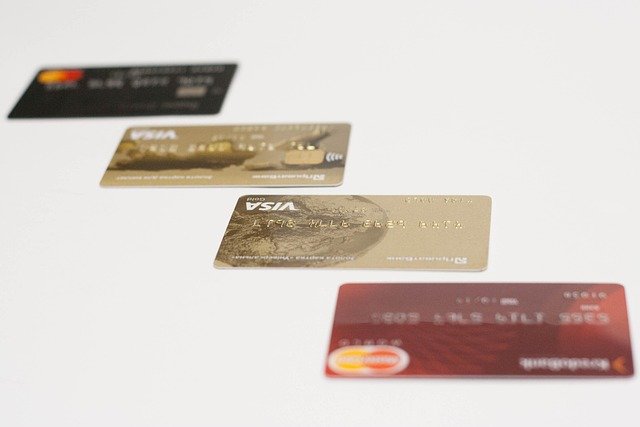Understanding Credit Cards: A Comprehensive Guide to Financial Freedom
Credit cards have become an integral part of modern financial life, offering convenience, flexibility, and potential rewards. However, navigating the world of credit cards can be challenging, especially for those with bad credit or those looking to improve their credit score. This article will explore the fundamentals of credit cards, their impact on personal finance, and how to use them responsibly to build a strong financial foundation.

When you use a credit card, you’re essentially taking out a short-term loan. The credit card issuer pays the merchant on your behalf, and you’re responsible for repaying the issuer. Each month, you’ll receive a statement detailing your transactions and the amount due. You can choose to pay the full balance, make a minimum payment, or any amount in between.
How does credit card usage affect your credit score?
Your credit score is a crucial factor in your overall financial health, and credit card usage plays a significant role in determining this score. Credit bureaus consider several factors when calculating your credit score, including:
-
Payment history: Making on-time payments is the most critical factor in maintaining a good credit score.
-
Credit utilization: This is the percentage of your available credit that you’re using. Keeping your utilization below 30% is generally recommended.
-
Length of credit history: Longer credit histories tend to have a positive impact on your score.
-
Credit mix: Having different types of credit accounts can demonstrate responsible credit management.
-
New credit inquiries: Opening multiple new accounts in a short period can negatively impact your score.
By using credit cards responsibly and consistently making on-time payments, you can build a positive credit history and improve your credit score over time.
What are the pros and cons of using credit cards?
Credit cards offer numerous benefits but also come with potential drawbacks. Understanding both can help you make informed decisions about their use.
Pros:
-
Convenience: Credit cards are widely accepted and eliminate the need to carry cash.
-
Rewards: Many cards offer cashback, points, or miles on purchases.
-
Build credit: Responsible use can help improve your credit score.
-
Fraud protection: Credit cards often provide better protection against fraudulent charges than debit cards.
-
Emergency funds: Credit cards can serve as a backup in financial emergencies.
Cons:
-
High interest rates: If you carry a balance, interest charges can accumulate quickly.
-
Potential for debt: Easy access to credit can lead to overspending and accumulating debt.
-
Fees: Annual fees, late payment fees, and balance transfer fees can add up.
-
Credit score impact: Misuse can negatively affect your credit score.
-
Complexity: Understanding terms, conditions, and reward programs can be challenging.
How can you choose the right credit card for your needs?
Selecting the right credit card depends on your financial situation, spending habits, and goals. Consider the following factors when choosing a card:
-
Interest rate: Look for cards with lower APRs, especially if you plan to carry a balance.
-
Fees: Compare annual fees, foreign transaction fees, and other charges.
-
Rewards: Choose a card with rewards that align with your spending patterns.
-
Credit score requirements: Some cards are designed for those with excellent credit, while others cater to those with fair or poor credit.
-
Additional benefits: Consider perks like travel insurance, purchase protection, or extended warranties.
Research and compare multiple cards before applying, and be sure to read the fine print to understand all terms and conditions.
What strategies can help you manage credit card debt?
If you find yourself struggling with credit card debt, there are several strategies you can employ to regain control of your finances:
-
Create a budget: Track your income and expenses to identify areas where you can cut back.
-
Prioritize debt repayment: Focus on paying off high-interest debt first while making minimum payments on other cards.
-
Consider balance transfers: Transfer high-interest balances to a card with a lower or 0% introductory APR.
-
Negotiate with creditors: Some issuers may be willing to lower your interest rate or waive fees.
-
Seek professional help: Credit counseling services can provide guidance and debt management plans.
Remember, the key to successful credit card management is responsible use and consistent repayment.
How can you rebuild your credit with a credit card?
For those with bad credit, secured credit cards can be an excellent tool for rebuilding credit. These cards require a security deposit, which typically becomes your credit limit. By using the card responsibly and making timely payments, you can demonstrate creditworthiness and potentially qualify for better cards in the future.
When using a credit card to rebuild credit:
-
Make small, regular purchases
-
Pay the full balance each month
-
Keep your credit utilization low
-
Be patient – improving credit takes time
As your credit improves, you may become eligible for unsecured cards with better terms and rewards.
In conclusion, credit cards are powerful financial tools that, when used responsibly, can provide convenience, rewards, and help build a strong credit history. However, they also come with risks, including the potential for high-interest debt. By understanding how credit cards work, choosing the right card for your needs, and managing your usage wisely, you can harness the benefits of credit cards while avoiding their pitfalls. Remember, the key to financial success lies in educated decision-making and responsible credit use.






